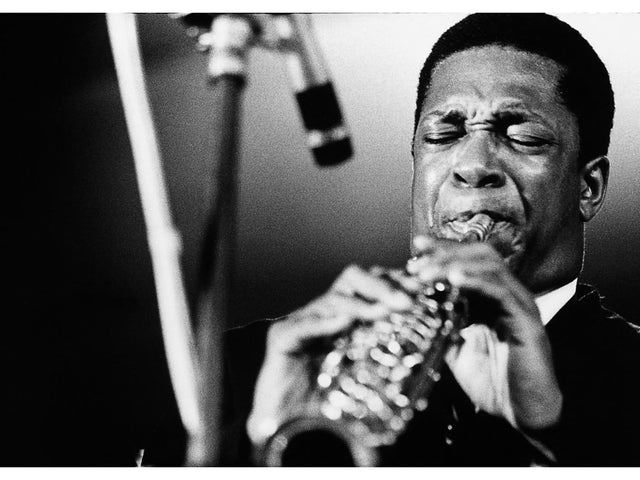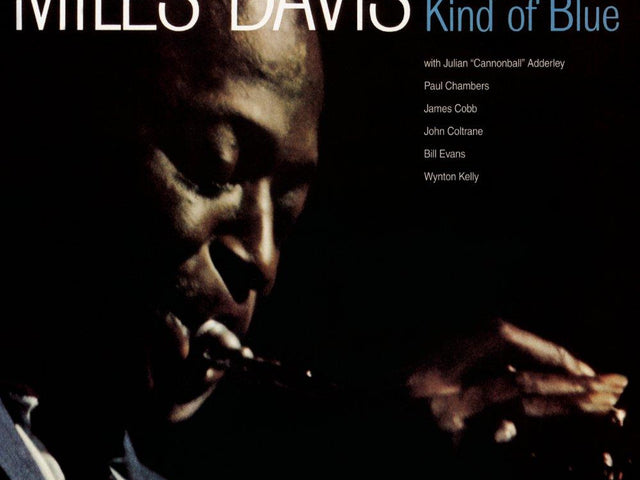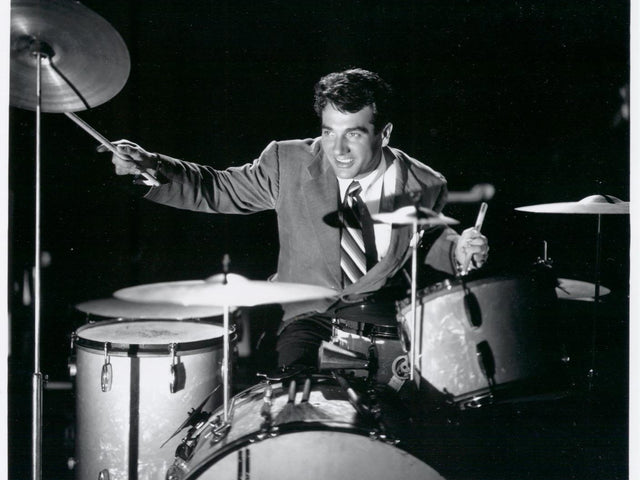De 10 beste New Pornographers-albumene du bør eie på vinyl
De Nye Pornografene (The New Pornographers) var aldri bygget for å vare, men de har klart å gjøre nettopp det. Bygget av Carl Newman fra asken til hans kortvarig suksessrike band Zumpano, ble De Nye Pornografene samlet av Newman fra en rekke andre kanadiske indie rock-grupper. De mest lysende juvelene i hans krone var Dan Bejar, som allerede hadde fått ros for sin dype låtskriving som Destroyer, og Neko Case, som begynte å få oppmerksomhet for sin sterke vokal og modne sanger. Deres første album sammen, 2000’s Mass Romantic, ble ikke utgitt med forventningen om at bandet kunne fortsette som en funksjonell enhet, men hver par år har de kommet tilbake, aldri tilfredse med bare å gjenskape suksessen, og har oppnådd en plass som et av indie musikkens sterkeste musikalske kollektiv.
Årene har siden tilført en utvikling. Bejar’s Destroyer har reinventert seg flere ganger, og blir anerkjent som en unik artist hvis arbeid bar nok signaturer til å kunne være grunnlaget for et drikkespill. Case er også blitt noe av en indie kjendis, glad for å dukke opp på plater som gjestevokalist mens hun gir ut et imponerende katalog av sitt eget arbeid. Selv Newman har bevist seg som soloartist, selv om platene hans alene i bunn og grunn høres ut som Nye Pornografene-album uten at alle vennene hans hjelper ham.
Denne uken vil det syvende albumet fra De Nye Pornografene bli utgitt, Whiteout Conditions. I løpet av de 17 årene har bandet utviklet seg uten å endre sin identitet betydelig, med Kathryn Calder som dukker opp som fjerde hovedvokalist i bandets midalder albumene og Bejar som er merkbart fraværende fra denne nyeste innspillingen. Dette gir mulighet til å se tilbake på bandets historie og velge ut de beste tilbudene de har delt, både sammen og hver for seg.

Zumpano: Goin’ Through Changes (1996)
At a time when the Pacific Northwest was still reeling from the sudden sensation of grunge, Sub Pop Records knew that they had to be looking for what’s next. Signing a band like Vancouver’s Zumpano represented the direction on which the label would eventually focus, with a slightly gentle form of power-pop that wasn’t intimidated by a distorted guitar and relied heavily big pop melodies. Zumpano, named after the group’s drummer and co-founder Jason Zumpano, was fronted by a young Carl Newman, and only managed two albums before unceremoniously dissolving. The second of these, 1996’s Goin’ Through Changes, is the stronger of the pair, and carries the fossil record of what the New Pornographers would become. “Broca’s Ways” might best display Newman’s emerging talents for building toward satisfying payoffs, with its booming chorus and Brian Wilson-esque harmonies. And on album closer “Some Sun,” Newman shows he can carry a song without much adornment, his vocals pushing cool confidence to an audience that wasn’t quite accustomed to such earnestness. The production value of the record might strike modern ears as what New Pornographers demos probably sound like, but four years before Mass Romantic would launch the band, Newman’s songwriting was already up to par.

The New Pornographers: Mass Romantic (2000)
As debut albums go, few unveil a band as fully-formed as Mass Romantic does for The New Pornographers. This is undoubtedly because of the pedigree of the group, peppered with rock veterans who already knew moderate success and their way around a recording studio. While there are plenty of analogs to past musicians, comparisons to Cheap Trick and The Beach Boys ring the most true, with the group parlaying favorable reviews of the album into the status of a successful touring band, even winning a Juno for the release. Their use of their strongest members (Case playing against her type by fronting a pair of the album’s biggest potential hits with the full-throttle title track and “Letter From an Occupant;” Bejar slipping his pop sensibilities into the fold seamlessly with the beloved “Jackie”) gave the album its supergroup sheen. That idea of a “supergroup” would follow the band around for its history, and they’d grow to deserve it as the years went by. And because of the three years that went into the album, Mass Romantic feels more collaborative between the three leads than future New Pornos albums would, with “To Wild Homes” still standing as the only number in their history where all three would share lead vocalist duties.

Neko Case: Blacklisted (2002)
Up until Blacklisted, Case’s first couple of solo albums were a fairly standard breed of alt-country, most notable for her voice and songwriting and less so for any sonic distinction. But in 2002, Case began to carve her own musical path, which was nowhere near the work she was doing with the Pornographers. Jazz, blues, rock, and pop are not off the table for Case, with everything anchored by confident vocals that already had become unmistakable at this point in her career. On the album we do see one New Porno guest spot as Kurt Dahle provided the photography for the album art, and also notable is Kelly Hogan’s appearance as a backing singer, as the two would form a work relationship that would continue throughout Case’s recording career. But most memorable about Blacklisted is the way Case navigates through emotional depth, unafraid to craft an album that delves into darkness and reemerges in the light. “I Wish I Was the Moon Tonight” became a blueprint for Case’s work that would follow, a gentle anthem that’s as sturdy as they come.

AC Newman: The Slow Wonder (2004)
In the early and mid-aughts, AC Newman would write and release his four best albums with The New Pornographers (we’re not covering Electric Version and the underrated Challengers here, but they’re also excellent and you should probably get them on vinyl, too) as well as his strongest solo album, the debut The Slow Wonder. The record fits right at home with what he was doing with the Pornos in terms of harmony, but gives Newman a bit more room to let his songs breathe. He comfortably navigates mid-tempo on “Drink to Me Babe Then”, “Most of Us Prize Fighters” and “Cloud Prayer” and even cools his way into somber, reflective territory on the lovely “Come Crash.” With the amount of music he was releasing at this time, it’s easy to suspect that The Slow Wonder was a sort of leftovers collection, but the strength of the cello-driven “The Town Halo” and the brightly melodic “On the Table” betray an artist bursting at the seams during his creative peak.

The New Pornographers: Twin Cinema (2005)
There isn’t much debate as to which album from the New Pornographers is their best. Twin Cinema, their third release as a band, is held in such high regard perhaps because it broke down much of the formula they used their first two records to establish. Instead of sticking Case as lead on the peppy, upbeat single, we find the Pornos marrying Case’s sound closer to her solo work, resulting in standouts “The Bones of an Idol” and “These Are the Fables.” Bejar lets Jackie return on “Jackie Dressed in Cobras” and even repurposes an old Destroyer songs for the band’s first acoustic ballad, “Streets of Fire.” The presence of Calder on her first album with the band gives the harmonies further depth with now two female vocalists in the fold. But the record most belongs to Newman and drummer Kurt Dahle. The two are feverishly in sync throughout the recording, and on the band’s greatest moment, “The Bleeding Heart Show,” they reach another stratosphere. The track is the result of Newman combining a few song ideas into a single composition, giving a relatively succinct four-and-a-half minutes the treatment of an epic. And as it hits its climax, with Dahle holding nothing back in drum fills and Case rising above the full-band harmonies to grab the lead vocal baton, the band sounds more expansive than ever, undoubtedly aware that they’d crafted a masterpiece.

Destroyer: Destroyer’s Rubies (2006)
Destroyer’s Rubies wasn’t Bejar’s first great album with Destroyer. That honor probably goes to 2001’s Streethawk: A Seduction, though arguments could be made for his output dating back to the 90’s. Rubies is something different, though, as if Bejar’s penchant for big ideas, complexity, and occupying his own little wormholes finally finds a perfect sense of balance. Take the opening number, the sprawling nine-and-a-half minute title-track that shifts tempos and fidelity. It should be intimidating for listeners, but winds up being an accessible, rewarding experience with multiple peaks and a series of payoffs. It works as a microcosm for what the album does well, with Bejar’s guitar melodies often mirroring his vocals and landing clever turns of phrase within labyrinths of nonsense. Plus, there’s tracks like “European Oils,” “Painter in Your Pocket,” and “3000 Flowers,” all as straight ahead as anything Bejar has ever put to tape, proving that beyond the guy who couldn’t seem to memorize his lyrics and preferred to record his vocals laying down was a pop songwriter worthy to stand in the shadow of David Bowie. Where Destroyer had already solidified its place as a true original by 2006, Destroyer’s Rubies is the album that allowed Bejar’s music its place within the canon.

Neko Case: Fox Confessor Brings the Flood (2006)
Neko Case’s best solo album. As she began with Blacklisted, Fox Confessor Brings the Flood continues down the road that Case herself called “country noir.” Of course, her sound can’t really be condensed into two words. “Hold On, Hold On” is a more traditional rock and roll single than anything that had come before, while "John Saw That Number" draws on gospel influences. But at it’s center, there is this melancholy darkness that imbues the songwriting. “That Teenage Feeling” uses it to obscure traditional nostalgia, while album highlights “Maybe Sparrow” and "Margaret vs. Pauline" take more direct storytelling approaches with just a touch of macabre. Case knows when to hold her voice back and when to let it loose, resulting in commanding moments meant to sweep the audience off its feet. It’s not just admirable in its ambition, but in how that ambition is realized, with Case knowing what she’s capable of as an artist, and attaining it.

Swan Lake: Beast Moans (2006)
The New Pornographers were just one of a slew of great Canadian indie rock bands to find success in the aughts. Arcade Fire, Broken Social Scene, Tegan and Sara, the Unicorns, and Death From Above 1979 all brought disparate sounds from the great white north to captivate audiences on a global level. And these bands weren’t existing in a vacuum. The New Pornographers’ John Collins did production work for Tegan and Sara, while Dan Bejar enjoyed collaborating with fellow musicians beyond the Pornographers. Perhaps his best output in this vein is a project called Swan Lake, which involved him, Wolf Parade’s Spencer Krug, and Frog Eyes’ Carey Mercer. All three are renowned songwriters with idiosyncratic voices, so hearing them trade-off lead vocals for two collections of songs (2006’s Beast Moans and 2009’s Enemy Mines) works as a sort of fantasy of what fans wish their favorite artists were doing behind closed doors. Though their first record together is slightly less cohesive, Beast Moans also features the higher highs of the two, led by Krug’s “All Fires,” a spare, haunting heartbreaker that still stands among his finest moments.

Destroyer: Kaputt (2011)
In a 2015 interview with DIY magazine, Dan Bejar describes Destroyer by noting “That’s kind of my goal: to start from scratch every time.” This explains how disconnected a work like Kaputt can sound from the rest of his catalog. Strangely, Kaputt came out during a resurgence of saxophone in popular music (M83’s Hurry Up, We’re Dreaming and Bon Iver’s Bon Iver, Bon Iver came out the same year), giving it a sort of relevance that Bejar certainly didn’t intend. Because of this, more people would hear Kaputt than any of his previous albums with Destroyer. He’d play Coachella and headline rooms for more than 1000 people. The album holds up beyond that, though, with Bejar letting arrangements take some of the pressure off him as a singer, creating the most well-rounded album of his career. There are playful experiments with time and space (see the previously released epic “Bay of Pigs”) as well a series a warm, lush standalones like “Chinatown” and “Downtown,” which would stand as some of the most beloved songs that Bejar has ever released.

case/lang/veirs: case/lang/veirs (2016)
Much like Bejar’s Swan Lake was a merger of three great songwriters, Neko Case’s case/lang/veirs project is a similar merger of a trio of accomplished musicians and vocalists seeing where a collaboration can take them. Unlike Swan Lake, though, case/lang/veirs feels like a real band, with the group settling on a single alt-country sweet spot to rest their voices. Collaborating with k.d. lang, a veteran artist who reportedly was considering retiring from music before the collaboration, and Laura Veirs, a lesser-known by highly respected folk singer, brings out Case’s ability to be a project’s glue, making for a calm, focused affair with striking clarity. When each takes the lead, they relish the opportunity to standout, but the album (and group) is most memorable when the three come together in harmony, forging a timeless, angelic aesthetic. It’s unfortunately that the album is thought to be a one-off, because the combination of these artists sure hit on something special.
Philip Cosores is Executive Editor for Consequence of Sound. His writing and photography has been featured at The Orange County Register, The AV Club, Stereogum, Red Bull, Bandcamp, LA Times, LA Weekly, and more. He lives in Los Angeles.
Únete al Club!
Bli med nå, fra 44 $Eksklusiv 15% rabatt for lærere, studenter, militære medlemmer, helsearbeidere & førstehjelpere - Bli verifisert!







